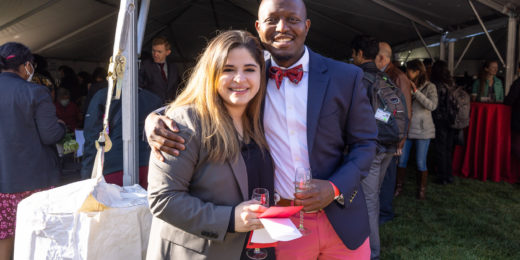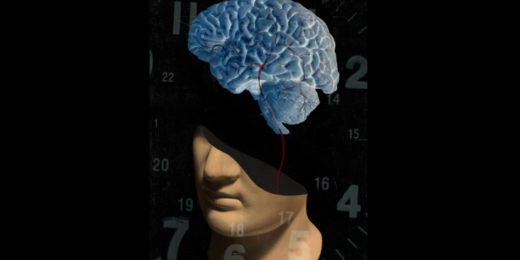A group of Black Stanford Medicine physicians and alumni discuss what advice they would give to their younger selves.
Author: Hanae Armitage
Stanford Medicine students find their match
Stanford Medicine graduating medical students find out where they will continue their education on Match Day.
Four-year-old’s bumped head leads to brain tumor discovery
A preschooler's brain tumor is revealed after he hits his head at a T-ball game, allowing doctors to remove it before it caused any issues.
Ask Me Anything: Answers about Daylight Saving Time and sleep
Stanford sleep scientist weighs in on all things sleep, including why we dream, how to get better sleep, and daylight saving time.
Bringing medical accuracy to ‘Grey’s Anatomy’
Stanford neurosurgery resident describes her experience as a medical adviser for the drama series Grey's Anatomy.
Report on opioids urges drug reform
Stanford researchers and colleagues issue a report detailing issues of the opioid crisis, including insufficient government policies.
Top 5 Scope stories of 2021
From the genetics of COVID-19, to cancer, to tonsils, this story is a wrap up of Scope's most read stories of 2021.
New genetics tool helps guide dosages of tuberculosis drug
Researchers design a test that predicts how quickly patients metabolize a standardized tuberculosis drug, aiming to increase efficacy.
Imaging technique improves outcomes for many stroke patients
Researchers at Stanford Medicine create new imaging technique to increase the window in which stroke patients can seek care.
Pervasive and understudied: The plight of the prostate
Stanford Medicine urologist discusses the future of research regarding prostate enlargement and how he plans to investigate the condition.
Saving the world with synthetic biology
A Stanford Medicine bioengineer sets out to create a world fueled by synthetic biology, creating tools and technologies to see it through.
Brain trauma is not the same in women and men
Stanford Medicine researchers are exploring how men and women's brains differ after traumatic head injury.
Q&A: Native Hawaiian resident shines light on health disparities
A Stanford Medicine medical student speaks to the disparities in representation of Native Hawaiian and Pacific Islanders in medicine.
Protecting your health (and sanity) during wildfire season
A Stanford Medicine researcher provides insight into how to protect yourself and your home during wildfire season.
Protective bubbles and ‘spacesuits’: SARS-CoV-2 in the lab
With "bubbles" and "spacesuits," Stanford Medicine scientists take on the challenge of researching SARS-CoV-2 in the lab.
Genetics could explain why some people get severe COVID-19
Stanford Medicine researchers and others discovered 13 genetic signatures that are closely linked to an increased risk for severe COVID-19.

















